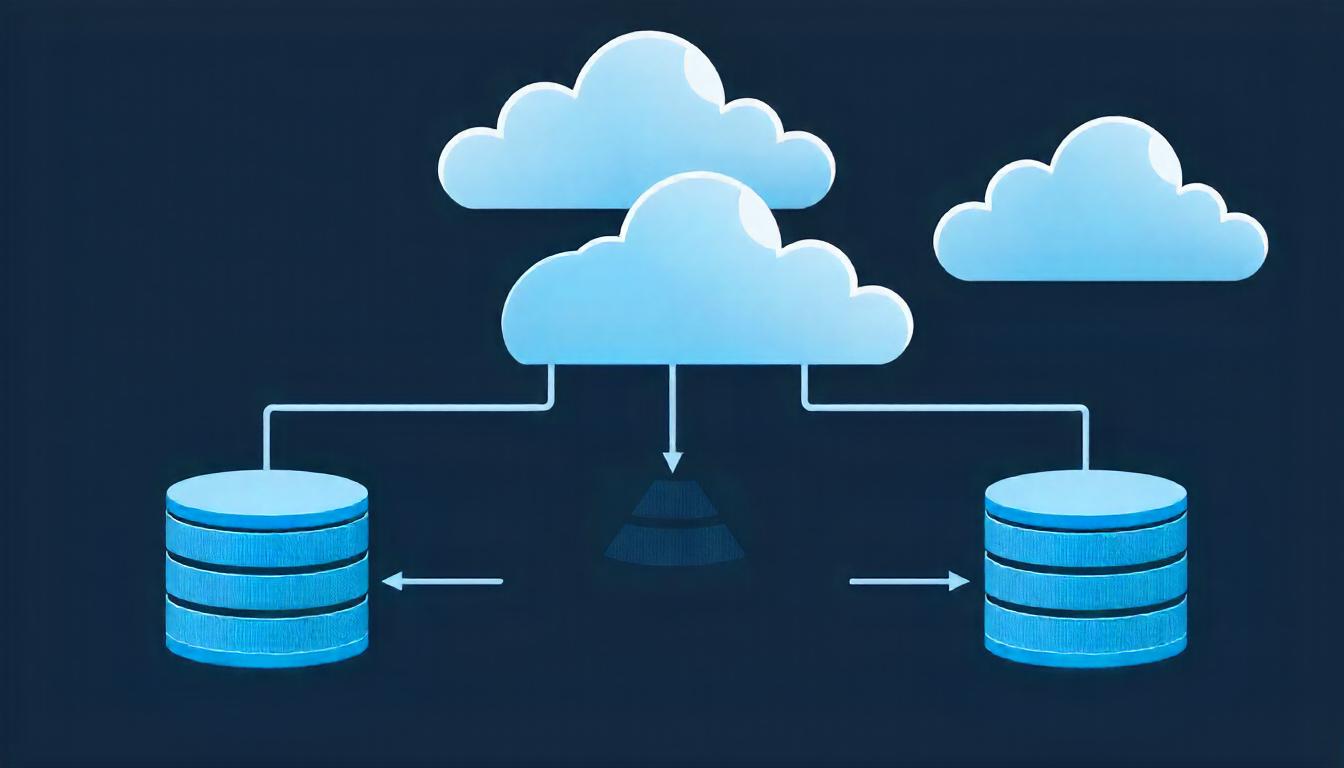Introduction to Cloud Databases
 Azhar Hussain
Azhar HussainTable of contents

Cloud databases offer a flexible, scalable, and cost-effective solution to handle vast amounts of data. Whether you're building an enterprise application or a small startup, understanding the different types of cloud databases and selecting the right one for your needs is essential. In this post, we'll explore the key types of cloud databases—relational and NoSQL—and provide an overview of some popular cloud database solutions, including AWS RDS, Azure SQL Database, and Google Cloud Spanner.
Types of Cloud Databases
When it comes to cloud databases, they are primarily categorized into two types: Relational Databases and NoSQL Databases. Each has its unique features, advantages, and use cases.
1. Relational Databases
Relational Databases are structured databases that store data in tables with predefined schemas. They use Structured Query Language (SQL) to manage and query data, making them ideal for applications that require complex queries and transactions.
Advantages:
ACID Compliance: Ensures data integrity through Atomicity, Consistency, Isolation, and Durability.
Data Consistency: Relational databases maintain strict data consistency, making them suitable for applications like financial systems, ERP, and CRM.
SQL Support: Provides powerful querying capabilities, enabling complex data operations.
Use Cases:
E-commerce Platforms: For managing product inventories, customer data, and transaction records.
Banking and Financial Services: To handle transactions, account details, and financial records.
Enterprise Resource Planning (ERP) Systems: For managing business processes and data across departments.
2. NoSQL Databases
NoSQL Databases are designed to handle unstructured or semi-structured data, offering more flexibility compared to relational databases. They don’t rely on fixed schemas, making them ideal for applications with rapidly changing data models.
Advantages:
Scalability: NoSQL databases are built to scale horizontally, making them ideal for handling large volumes of data.
Flexibility: They support various data models, including document, key-value, graph, and column-family, allowing for diverse data storage needs.
Performance: Optimized for high-speed data retrieval and processing, NoSQL databases are perfect for real-time applications.
Use Cases:
Social Media Platforms: To store user profiles, posts, and interactions, which often involve unstructured data.
Big Data Applications: For processing and analyzing massive datasets, such as log data, sensor data, and analytics.
Content Management Systems: To manage and deliver diverse content types, such as text, images, and videos.
Popular Cloud Database Solutions
Now that we've explored the types of cloud databases, let's dive into some of the most popular cloud database solutions available today.
1. AWS RDS (Relational Database Service)
AWS RDS is Amazon's managed relational database service that supports various database engines, including MySQL, PostgreSQL, MariaDB, Oracle, and SQL Server.
Key Features:
Automated Backups: AWS RDS automatically backs up your database, ensuring data durability.
Multi-AZ Deployment: Provides high availability by replicating data across multiple availability zones.
Performance Monitoring: Offers tools like Amazon CloudWatch for real-time performance monitoring.
Use Cases:
Web Applications: Ideal for applications requiring a reliable relational database with minimal management overhead.
Data Warehousing: Supports large-scale data warehousing solutions using Amazon Aurora.
2. Azure SQL Database
Azure SQL Database is Microsoft's fully managed relational database service that offers a robust and scalable platform for SQL-based applications.
Key Features:
Built-in AI and Machine Learning: Azure SQL Database integrates with Azure AI to provide intelligent insights and performance tuning.
Global Scalability: Supports geo-replication, allowing you to scale your database globally.
Advanced Security: Offers features like Advanced Threat Protection and data encryption to secure sensitive information.
Use Cases:
Enterprise Applications: Perfect for mission-critical applications requiring high availability and disaster recovery.
Business Intelligence: Supports BI tools like Power BI for advanced data analysis and visualization.
3. Google Cloud Spanner
Google Cloud Spanner is a unique, horizontally scalable, globally distributed relational database service that combines the best of relational and NoSQL databases.
Key Features:
Global Distribution: Spanner is designed to scale across the globe while maintaining strong consistency.
Automatic Sharding: Dynamically splits data across nodes to ensure optimal performance and scalability.
SQL and NoSQL Capabilities: Supports SQL queries while offering the flexibility of a NoSQL database.
Use Cases:
Global Applications: Ideal for applications that require a single database instance accessible from multiple regions worldwide.
Gaming: Supports high-performance, globally consistent gaming applications with real-time data requirements.
Conclusion
Choosing the right cloud database is crucial for the success of your application. Whether you opt for a relational database like AWS RDS or Azure SQL Database, or a NoSQL solution like Google Cloud Spanner, understanding the strengths and use cases of each option will help you make an informed decision. As cloud technology continues to evolve, these databases will play a pivotal role in shaping the future of data management.
Subscribe to my newsletter
Read articles from Azhar Hussain directly inside your inbox. Subscribe to the newsletter, and don't miss out.
Written by

Azhar Hussain
Azhar Hussain
Over 2 decades of software engineering experience, including over a decade in building, scaling and leading engineering teams.